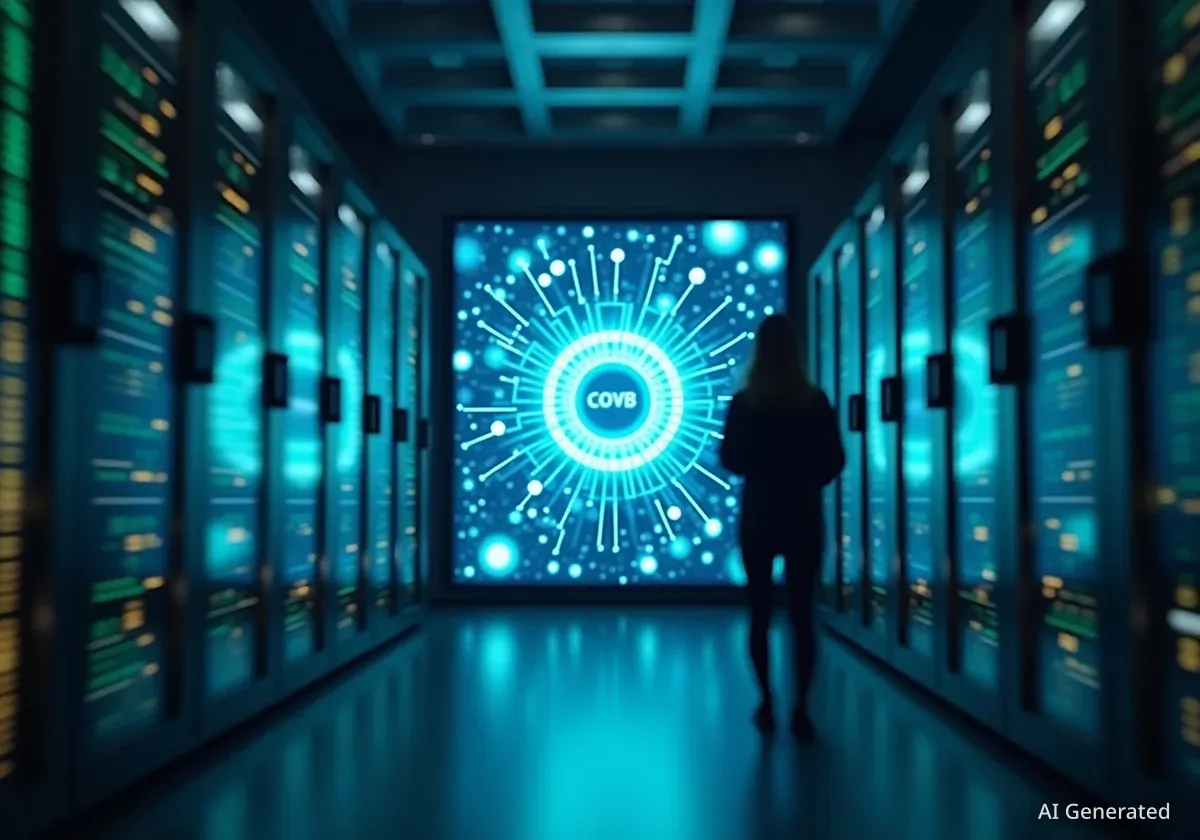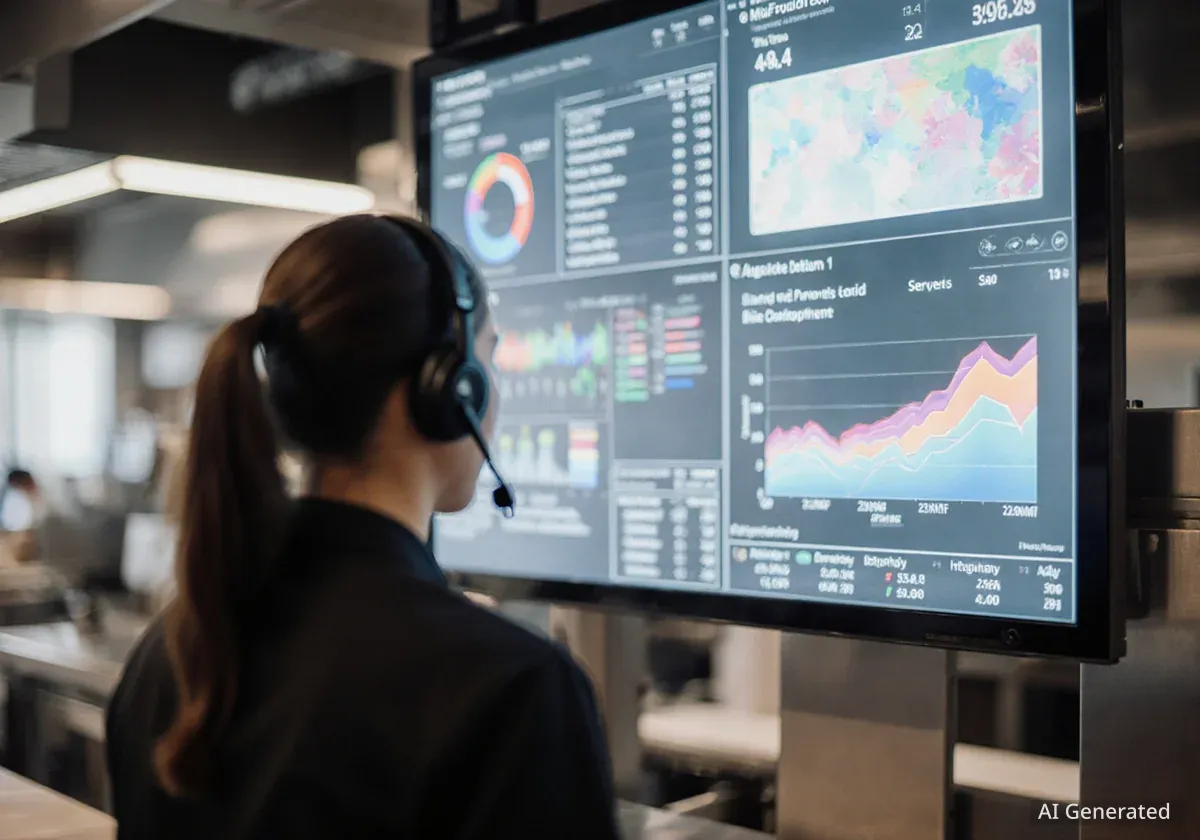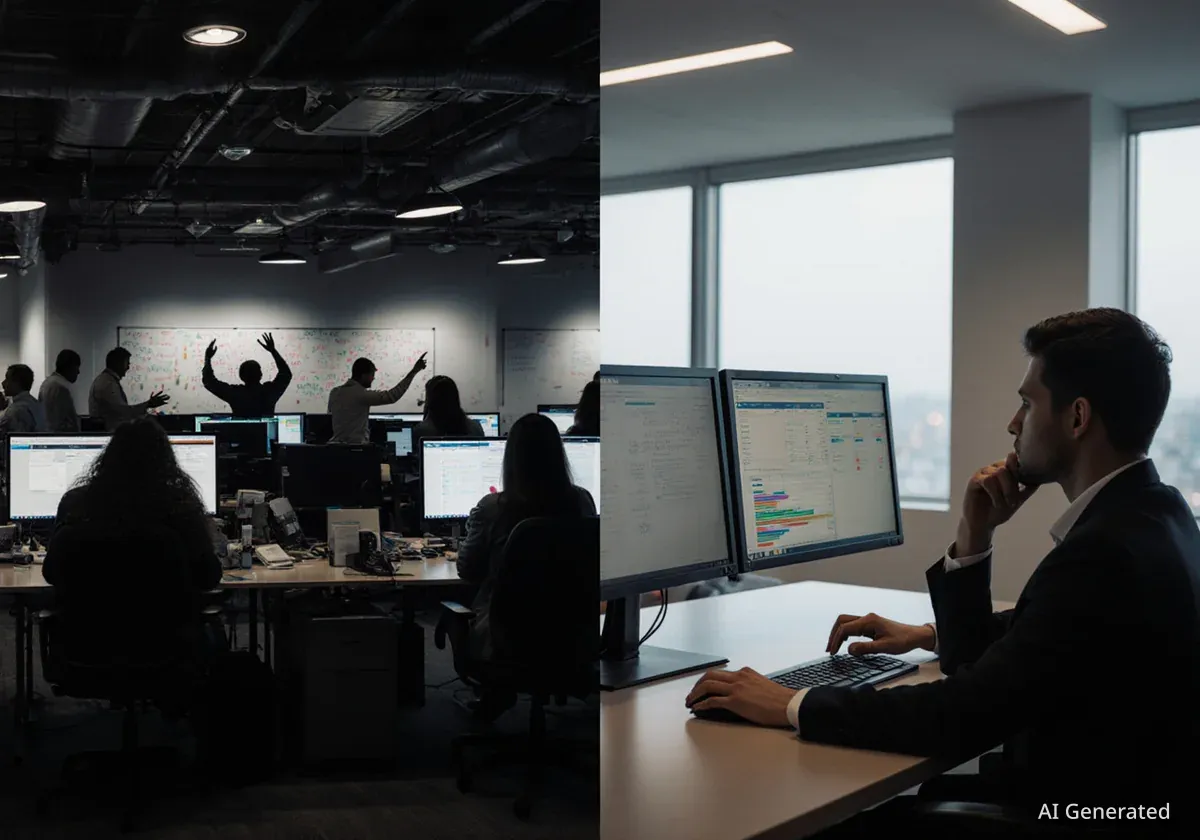Google's recent announcement to transform its Chrome browser into an 'agentic AI' platform has sent ripples through the business community. Companies are expressing significant concern that this shift could fundamentally alter how users interact with the internet, potentially disrupting established digital business models.
This development is part of a broader trend where artificial intelligence is rapidly moving from a background technology to a primary interface for consumers. From major marketing campaigns by AI leaders like OpenAI to new strategies for global events like the FIFA World Cup, businesses are grappling with the opportunities and threats posed by an increasingly AI-driven world.
Key Takeaways
- Google plans to integrate 'agentic AI' into Chrome, which could automate tasks and change how users access websites, raising concerns for online businesses.
- OpenAI has launched its first major brand campaign for ChatGPT, aiming to normalize the use of AI assistants in daily life.
- The rise of AI is forcing marketers to discover new sources of consumer data as traditional web traffic patterns may be disrupted.
- Major global events, such as the upcoming FIFA World Cup, are seeing marketing strategies influenced by both AI technology and geopolitical factors.
Google's Vision for an AI-Powered Browser
Google is actively developing plans to remake its Chrome browser into a more proactive, AI-driven tool. The concept revolves around creating an 'agentic AI' browser, which would function less like a passive window to the web and more like a personal assistant that anticipates user needs and automates tasks.
This AI could, for example, summarize articles, compare products from different websites, or even complete multi-step processes like booking a trip without the user needing to visit each site individually. While this promises a more streamlined user experience, it has generated considerable anxiety among brands and online publishers.
What is Agentic AI?
Agentic AI refers to artificial intelligence systems that can operate autonomously to achieve goals. Unlike simple chatbots that only respond to direct commands, an 'agent' can understand a high-level objective, break it down into smaller steps, and execute those steps independently across different applications or websites.
Concerns Over Disrupted Web Traffic
The primary fear for businesses is the potential loss of direct website traffic. If an AI agent can pull information and present it directly within the browser, users may have little reason to click through to the original source. This could have several negative consequences for companies that rely on their websites for revenue and customer engagement.
Potential impacts include:
- A significant drop in advertising revenue for publishers.
- Reduced opportunities for direct sales and lead generation.
- Loss of valuable first-party data on consumer behavior.
- Diminished ability to build a direct relationship with customers.
Many businesses feel this shift could place Google in an even more powerful gatekeeper role, controlling not just access to information but the presentation of it, potentially harming brand visibility and online commerce.
OpenAI's Push into the Mainstream
While Google's plans cause concern, AI companies are working to make their technology a part of everyday life. OpenAI, the company behind ChatGPT, recently launched its first major brand campaign to demonstrate the practical, human-centric uses of its AI assistant.
Developed with the agency Isle of Any, the campaign features a series of cinematic advertisements. These spots move away from technical jargon and instead show people using ChatGPT to 'learn, create and grow' in relatable situations. The goal is to position the AI tool not as a complex piece of technology, but as a helpful companion for daily tasks and creative endeavors.
From Tech Demo to Household Name
OpenAI's marketing strategy highlights a critical phase in the adoption of new technology. By focusing on everyday applications, the company aims to broaden its user base beyond early adopters and integrate its services into the daily routines of the general public, much like search engines and smartphones did in previous decades.
This mainstream marketing effort is significant because it signals the maturation of the AI industry. As AI becomes more accessible and user-friendly, its influence on consumer behavior and business operations is set to accelerate dramatically.
Adapting Marketing to a New Reality
The changes driven by AI are forcing marketers to reconsider fundamental aspects of their work, starting with how they understand their customers. With the potential disruption of traditional web analytics, businesses are being urged to explore alternative sources of consumer insights.
"Marketers may have access to more consumer insights than they think," suggests a recent industry analysis, pointing to data that is often overlooked within an organization.
Finding Hidden Data Sources
As direct website interaction becomes less of a given, companies must become more creative in gathering intelligence. Experts recommend looking at four often-underutilized areas for valuable consumer data:
- Customer Service Interactions: Transcripts from support calls, emails, and chat sessions are a rich source of information about customer pain points, product feedback, and unmet needs.
- Sales Team Feedback: Frontline sales personnel have direct conversations with potential customers and can provide qualitative insights that quantitative data might miss.
- Social Media Community Engagement: Beyond simple metrics like likes and shares, analyzing the content of comments and direct messages can reveal powerful trends and sentiments.
- Product Usage Analytics: For software and service companies, detailed data on how users interact with a product can expose which features are most valued and where improvements are needed.
By diversifying their data sources, businesses can build a more resilient and holistic understanding of their audience, making them less dependent on a single channel like website traffic.
AI's Role in Global Event Marketing
The influence of technology and global events is also evident in the marketing plans for the upcoming FIFA World Cup, which will be held across North America. As the world's attention turns to soccer's biggest event, major sponsors are preparing massive campaigns that will exist in a complex environment shaped by technology and politics.
AI is expected to play a role in everything from personalized fan engagement and content delivery to optimizing advertising spend across different platforms. At the same time, brands must navigate a sensitive political landscape, carefully crafting messages that resonate with a global audience without alienating specific groups.
This intersection of technology, commerce, and global affairs demonstrates the modern challenges marketers face. Success requires not only creative excellence but also a deep understanding of technological tools and geopolitical dynamics.
Even as technology evolves, the need for standout creative ideas remains paramount. Recent notable campaigns have found success by using humor and unexpected concepts, from a campaign promoting colon cancer screening using denim to another featuring DIY parenting hacks. These examples show that in a world of increasing automation, human creativity is still a brand's most valuable asset.





